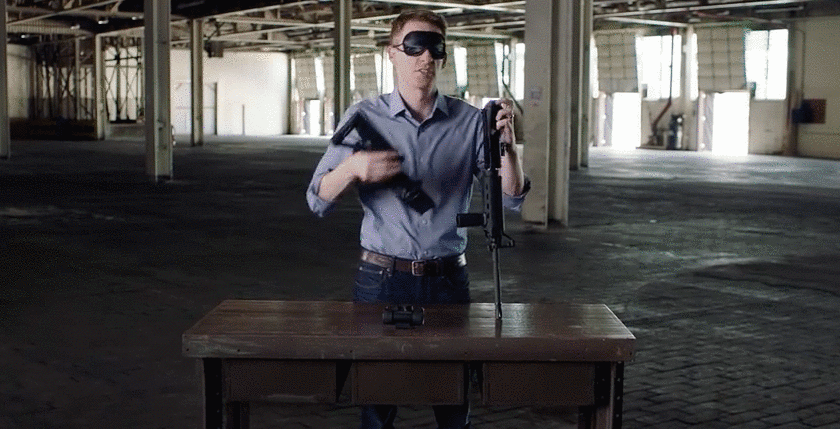The ominous, disembodied voice is accompanied by a heart-pounding, orchestral score.
“Deborah Ross sure is smooth,” the voice says of the Democratic candidate, who is challenging Senator Richard Burr, Republican of North Carolina, for his seat in the upper chamber. A clip plays of Ross advocating for “individual freedom” and “personal liberty.”
Then the voice cuts in.
“But as a legislator, Ross voted against personal liberty,” it says. “Ross voted for gun control.”
The ad, produced by the National Rifle Association, aired last week, and is part of a new campaign against Ross that cost the NRA over $1.5 million, according to Federal Election Commission filings. To date, the NRA has spent just under $2 million on the North Carolina senate race, which is considered extremely competitive by the nonpartisan Cook Report. The gun rights organization has poured more money into the contest than any outside of the presidential race.
Previously, the most expensive down-ballot contest for the NRA was the Senate race in Ohio, between Republican Rob Portman, the incumbent, and Ted Strickland, his Democratic challenger and Ohio’s former governor. The NRA invested heavily in that race early on, since Portman, a reliable ally, was considered vulnerable. Portman has opened up a wide lead over Strickland, and NRA spending has stalled.
The Trace, in collaboration with OpenSecrets, is closely tracking the NRA’s independent expenditures this election cycle. This is money spent on a variety of communications, including television and radio ads, in support of a candidate — or, as is more common, in opposition to one. Under federal election laws, it must be spent without coordination with a candidate, but there are no caps on the spending.
In federal elections, as The Trace previously reported, the gun rights group has evolved into an organization that almost exclusively supports the GOP. The NRA is spending more money on federal elections than it has at any other time in its history.
With less than seven weeks until Election Day, the NRA’s total expenditures come to roughly $16 million, about half of what it spent in all of 2014. The amount dwarfs election spending by leading gun reform groups. Everytown for Gun Safety’s total expenditures, for example, have still not surpassed $100,000, while Americans For Responsible Solutions’ expenditures remain at about $1.5 million. (Everytown is also investing in ballot measures, including one effort to expand background checks in Maine, where the group has spent more than $3 million. The group has provided financial support to The Trace.)
Preserving Republican Senate seats in North Carolina has been a top priority for the NRA. In 2014, it spent over $5.5 million to help elect Thom Tillis in his bid to unseat the Democratic incumbent, Kay Hagan. Tillis won the race, which remains the costliest down-ballot election in NRA history.
Over the last week, the NRA’s spending on attack ads seems to have kicked into high gear — an expected development. In the last few elections, the NRA has spent the majority of its election-earmarked funds attacking Democrats.
In addition to the campaign against Ross, who, as a state representative, consistently opposed bills that sought to expand gun rights, the NRA has introduced two new campaigns, one in opposition of Hillary Clinton, and the other to defeat Evan Bayh, a moderate Democrat looking to reclaim a Senate seat in Indiana.
When Bayh served as a Senator between 1999 and 2011, he voted to extend President Bill Clinton’s assault weapons ban. One of the ads the NRA is running against him references this vote, and says, “If Evan Bayh wins, you can kiss your guns rights ‘Bayh Bayh.’” The campaign cost the NRA almost $645,000.
The ongoing campaign against Clinton is far more expensive. The NRA says it will cost $5 million. The theme of the ads the group is producing revolves around what is now an NRA cliché. A woman is alone in bed, when an intruder breaks into her home.
“She’ll call 9-1-1. Average response time, 11 minutes,” the narrator intones. The woman makes a dash for her safe to retrieve her gun, but it isn’t there. The narrator says, “Don’t let Hillary leave you protected with nothing but a phone.”
[Photo: NRA-PVA]

